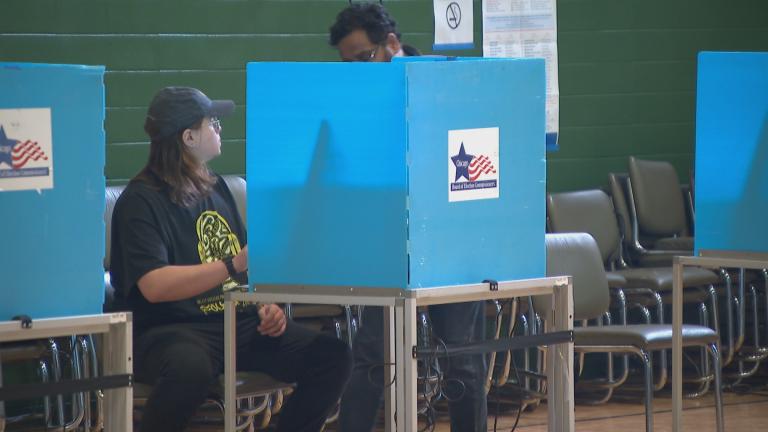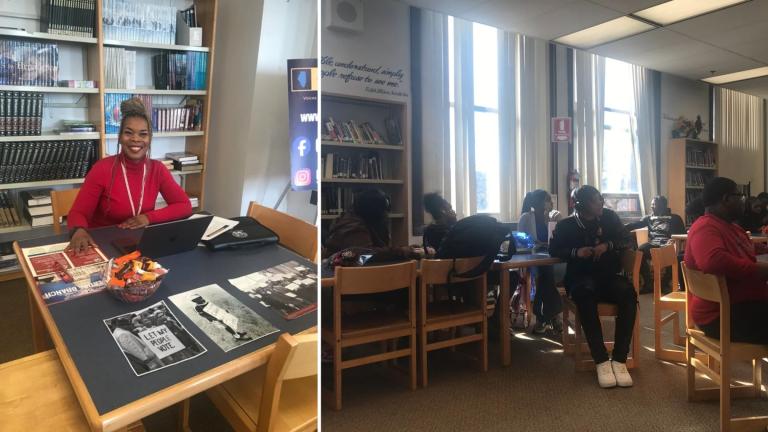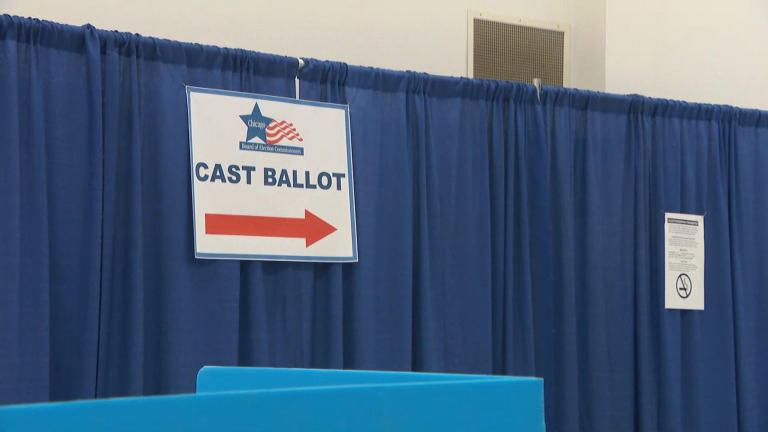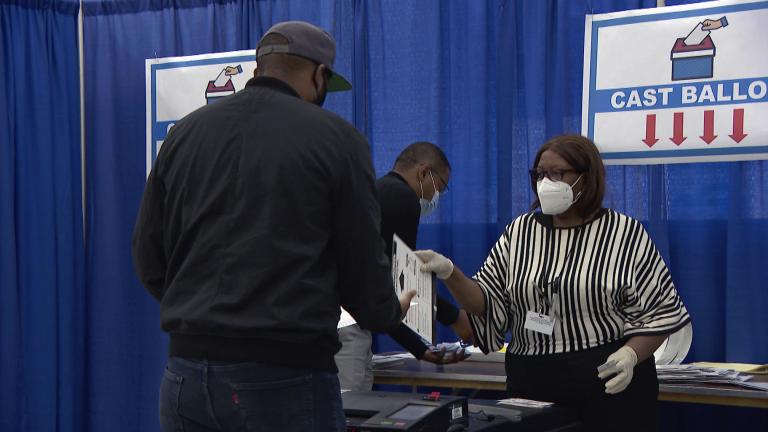Misinformation about voting is one of the biggest challenges facing modern election authorities.
In an age when false information can be magnified and disseminated to millions with a single tweet or Facebook post, combatting that misinformation is all the more important.
But President Donald Trump has repeatedly cast doubt about voting by mail, saying, without evidence, that it would lead to widespread voter fraud. He has also repeatedly called on people to try to vote twice to test the integrity of the system.
Saturday on Twitter, Trump encouraged voters in North Carolina, a key battleground state, to vote once by mail and once in person. Twitter subsequently hid the tweet for violating site rules regarding protecting election integrity.
NORTH CAROLINA: To make sure your Ballot COUNTS, sign & send it in EARLY. When Polls open, go to your Polling Place to see if it was COUNTED. IF NOT, VOTE! Your signed Ballot will not count because your vote has been posted. Don’t let them illegally take your vote away from you!
— Donald J. Trump (@realDonaldTrump) September 12, 2020
Matt Dietrich, spokesman for the Illinois State Board of Elections, says that social media misinformation “is a big problem” and the board does its best to debunk false claims as quickly as possible.
“But when you have (Trump putting out misinformation) then it’s just a matter of us continually putting out the message that voting by mail in Illinois is absolutely as safe and secure as voting in person,” Dietrich said in an interview Monday with “Chicago Tonight.” “There are safeguards put in place to make sure that your application comes from you. Your ballot comes to you only and is filled out only by you. It is signed. It is treated essentially in the same way as casting an early vote.”
He says election authorities are especially keen to get that message out this year because of the fears many people may have about voting in person during the COVID-19 pandemic.
Ami Gandhi is senior counsel at the Chicago Lawyers’ Committee for Civil Rights, a nonprofit, nonpartisan organization that promotes racial equity and opportunity — including around voting rights.
Gandhi says voter disinformation and potential disenfranchisement “can hit communities of color the hardest” and notes that one of the most frequent questions they receive is whether you need an ID to vote. The answer is no in Illinois, provided you’re already registered to vote.
“You may need one if you have not registered to vote yet, but if they are already a registered voter in Illinois they should not need an ID in order to cast their ballot,” Gandhi said. “It might not sound like a big deal for those who have IDs readily available, (but) for some people, just one more bureaucratic step to jump through could be the difference for them as to whether they decide to vote or not.”
She says that contradictory information coming from government officials has left would-be voters confused.
“We really hope that any voters who do have questions will reach out to us to get correct, nonpartisan information,” said Gandhi, adding that the Chicago Lawyers’ Committee has hundreds of lawyers who have volunteered their time to answer voters’ questions.
The Chicago Lawyers’ Committee’s voter hotline number is 866 OUR VOTE.
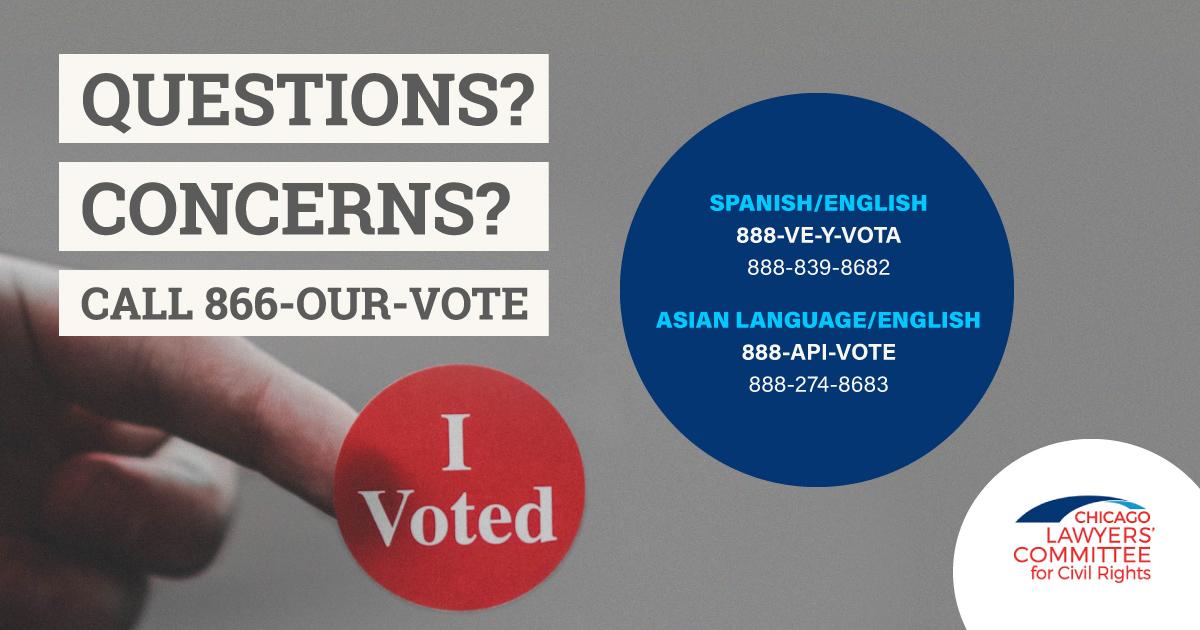 (Courtesy of the Chicago Lawyers’ Committee for Civil Rights)
(Courtesy of the Chicago Lawyers’ Committee for Civil Rights)
“We are hearing concerns from voters about a number of different issues that are confusing people about whether they have the right to vote and what their available options are about how to exercise the right to vote, and people asking, ‘Will my vote be counted?’” Gandhi said. “It’s extremely important in these times that all eligible voters know about the many options available to them to exercise their right to vote in a way that feels healthy and comfortable and trustworthy to them … The point is not to criminalize community members for having questions. A lot of people have very understandable questions about voting during this very confusing time.”
With a record number of voters expecting to cast mail-in ballots this year, Dietrich said the most common mistake election officials see is people either failing to sign their ballot or not sealing the envelope properly. But if there is a problem with your ballot, election officials will notify you within 48 hours to allow you to correct the mistake.
One mistake they can’t rectify? Ballots sent in too late.
“If it’s postmarked Nov. 4 it’s not going to be counted,” Dietrich said.
As for Trump’s advice to try to vote twice — that would not be a good idea.
“Voting twice is a class three felony. It’s voter fraud,” Dietrich said. He also notes that given the inevitable paper trail, the likelihood of being caught is all but certain.
“It’s like robbing a bike and then handing your driver’s license to the teller,” Dietrich said. “It’s the easiest crime to prove.”

